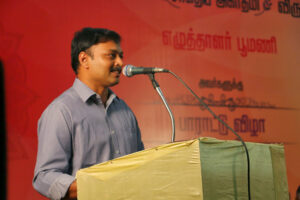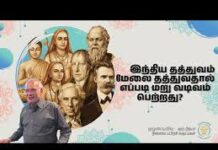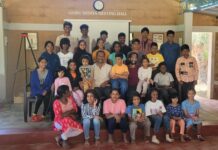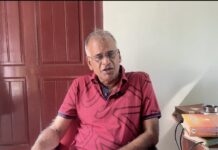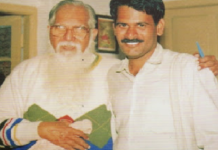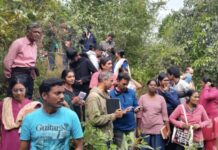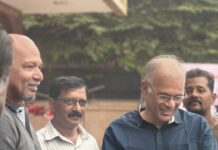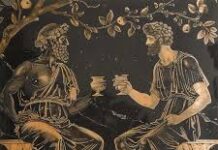Temple Arts: Training, Secondary Level
This is the next level of training for those who have attended the temple training camps that have taken place so far. In this, the Jayakumar will teach what needs to be learned more and what needs to be observed, particularly in a temple.
He will also teach us how to make this education useful for ourselves and others. Aspirants will be taught how to take a temple, thoroughly research it, document it and write it into a short book.
Doing this in small groups gives the doers deep attention and training in the art of the temple. It will be the start of the great work of recording our temples.
Date: August 16 17 & 18 (Friday, Saturday, and Sunday)
Classes to Come(Places available)
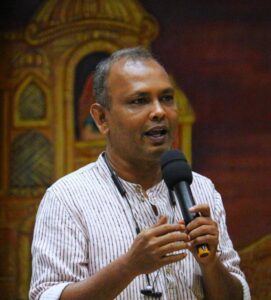
Introductory Bible classes
Many of the participants said that a previous Bible class that a friend, Cyril Alex, who had studied formal Christian theology, had taught had been an experience. There is no other place where the Bible is so taught with its spirituality and aesthetics for modern readers.
The Bible is the most important historical and cultural document for modern European art and modern European literature. This is an introductory class on how to approach it.
Also reaching out to the Bible spiritually is a profound journey. This is not religious education. No worship or prayer is attached to it. An education to know the Bible through one’s spiritual journey
As well as training to achieve holistic knowledge and understanding in conjunction with other philosophies
These classes will take place on June 21st, 22nd and 23rd
Vaishnava Classes
J. Rajagopalan
The sacred Four thousand verses (Nalayira Divyaprabandha) is the fertile ground where Vaishnava philosophy originated. Approaching it intellectually and knowing its Tamil flavor is essential for understanding present day Tamil culture. It can be said that those who do not know Tamil are illiterate. Four classes of Vaishnava Literature Introductory Camp have taken place before this. Letters have been pouring in, saying that each was a great learning and emotional experience.
Date June 28, 29 and 30 (Friday, Saturday, Sunday)
write to [email protected]
Introduction to Islamic Philosophy – Literature.
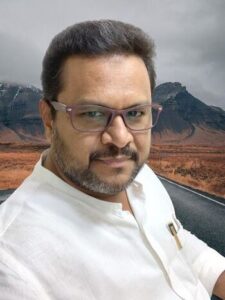
For centuries, Islam has been part of Indian culture. Non-Muslims, however, have no understanding of Islam. Without understanding, there can be no unity in Indian life. What we need is ‘understanding’ rather than ‘tolerance.’
The Sufi tradition, one of Islam’s philosophies, has played a significant role in Indian spiritual thought and Indian arts (especially music). Without realising it, it is impossible to understand Indian literature and art.
Islamist politicians, who only foster division, cannot impart any understanding. Only those who learn Islamic philosophy can attain such understanding. In today’s climate of hatred and divisiveness, deep mutual awareness can be a real reaction against this situation.
Even today, Muslims understand Islam in two ways. Religious and political. There are very few classes devoted solely to philosophy like this.
Tamil Islam is a significant component of Tamil culture. The Tamil epic tradition has greatly contributed to the Tamil literary tradition. Readers of Tamil literature and lovers of Tamil culture should know it.
Nisha Manzoor, a poet and Islamic scholar, will teach this class, which will cover the history of Islam, its philosophy, its global Sufi tradition, and Tamil Sufi literature.
July 12 13 and 14 (Friday evening to Sunday afternoon)
write to [email protected]
Introduction to German Philosophy
German philosophy, from Kant to Heidegger. An introduction.
Conducted by Ajithan.

Western Art (Painting, Photography) by AV Manikandan. Fourth class.
Dates are August 30, 31 and September 1
Buddhist Philosophy- Vipassana sessions conducted by V. Amalan Stanley are recurring.
Dates September 6, 7 and 8 (Friday, Saturday, Sunday)

Indian Philosophy First Class
Indian Philosophy First Level Class First Level Classes are re-announced due to saturation of seats in the previously announced class.
September 13, 14 and 15 (Friday Saturday Sunday)
Tamil Ancient LiteratureReading Practice
 Old Tamil Literature Reading Classes
Old Tamil Literature Reading Classes
Marabin Maindan Muthiah has formal training in Tradition literature and modern literary traditions .Continuity of Tamil literary tradition from Sangha Literature to Citlilakiyams and how to read them will be taught. This is not a grammar or informational tutorial. Purely an exercise in literary taste
September 20 22 and 22 (Friday Saturday Sunday)
=======================================================
Our other websites
